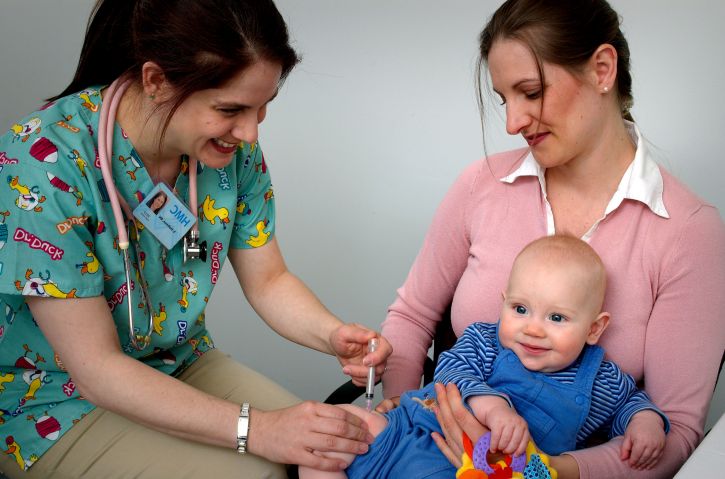At the 2019 European Congress of Clinical Microbiology and Infectious Diseases (ECCMID) in Amsterdam, Olivier Epaulard and Adam Finn gave alternate views on how important combating vaccine hesitancy and improving convenience in vaccine supply are to maintaining high vaccination rates and safeguarding public health.
GlobalData believes vaccine hesitancy has had a major impact on paediatric vaccination rates across Europe, as well as globally.
However, studying the healthcare systems that have avoided significant drops in vaccination rates could be the key to dampening its influence on public health.
In light of the growing re-emergence of vaccine-preventable diseases across Europe, there has been an increasing focus from governmental agencies and other public health stakeholders on how to better understand and combat the spread of vaccine misinformation on social media. This is a major concern and has helped to bring forward the public conversation about the level of regulation that should be applied to social media.
One method employed in France to control the problems related to vaccine hesitancy was to make routine paediatric vaccination mandatory, thereby removing consumer choice.
However, this approach does overlook the fact that if citizens are misinformed about vaccines and have inherently inaccurate views about their benefits, making them mandatory will not improve their trust in the healthcare system.

US Tariffs are shifting - will you react or anticipate?
Don’t let policy changes catch you off guard. Stay proactive with real-time data and expert analysis.
By GlobalDataAn alternative approach to improving vaccination rates is to identify the logistical and informational hurdles that make receiving a vaccination unnecessarily difficult.
Portugal has remained a world leader in vaccination rates, with MMR, DTaP, and meningococcal C vaccination rates all above 95%, in part owing to a nationalized health service, which makes information on the required vaccinations extremely accessible to every patient. Electronic health records (EHRs) in Portugal, which include immunization history, are available through an online portal that lets any citizen understand if they are up-to-date on immunizations and what vaccinations they will require in the future. Reminders are also issued once someone is due to receive their next vaccine―approaches such as these have made vaccinations easy to follow and have translated into paediatric and booster vaccinations rates being consistently higher than 95%.
The propagation of vaccine misinformation via social media―and the resulting vaccine hesitancy of those exposed to these anti-vaccine campaigns―is a major problem throughout the developed world and has negatively impacted public health in these nations.
However, implementing regulations on social media and news outlets regarding anti-vaccine misinformation will not fix the underlying issues in immunization programs.
GlobalData believes that Portugal, which has experienced similar levels of misinformation to other European countries, has demonstrated that by harnessing EHRs and allowing patients to easily access information, which prevents them from turning to alternate sources of information, the public health threat posed by vaccine hesitancy can be minimized.





